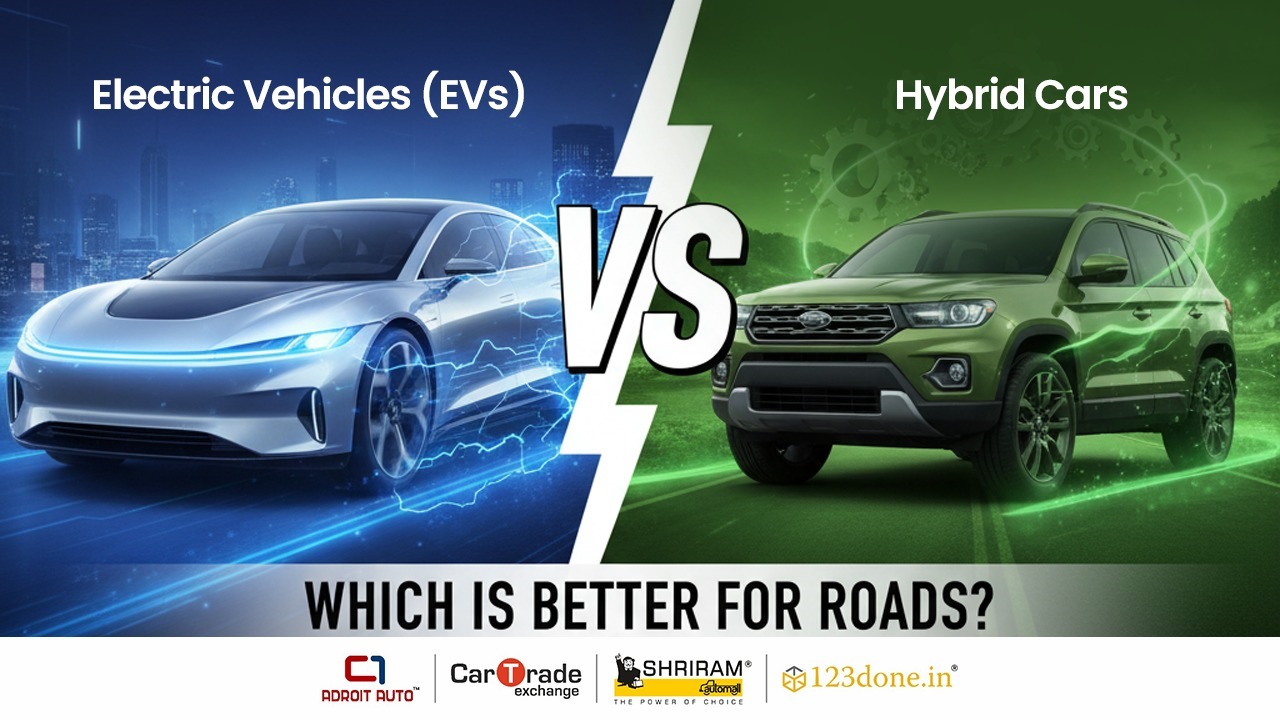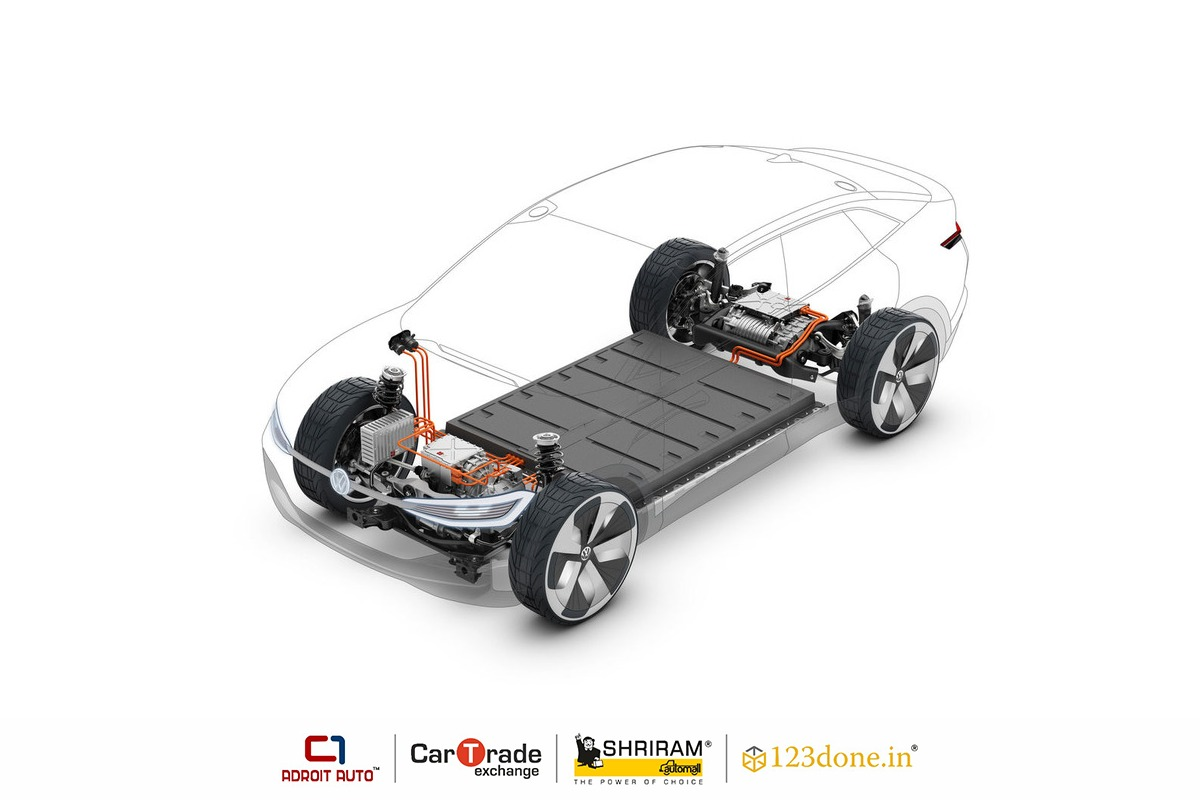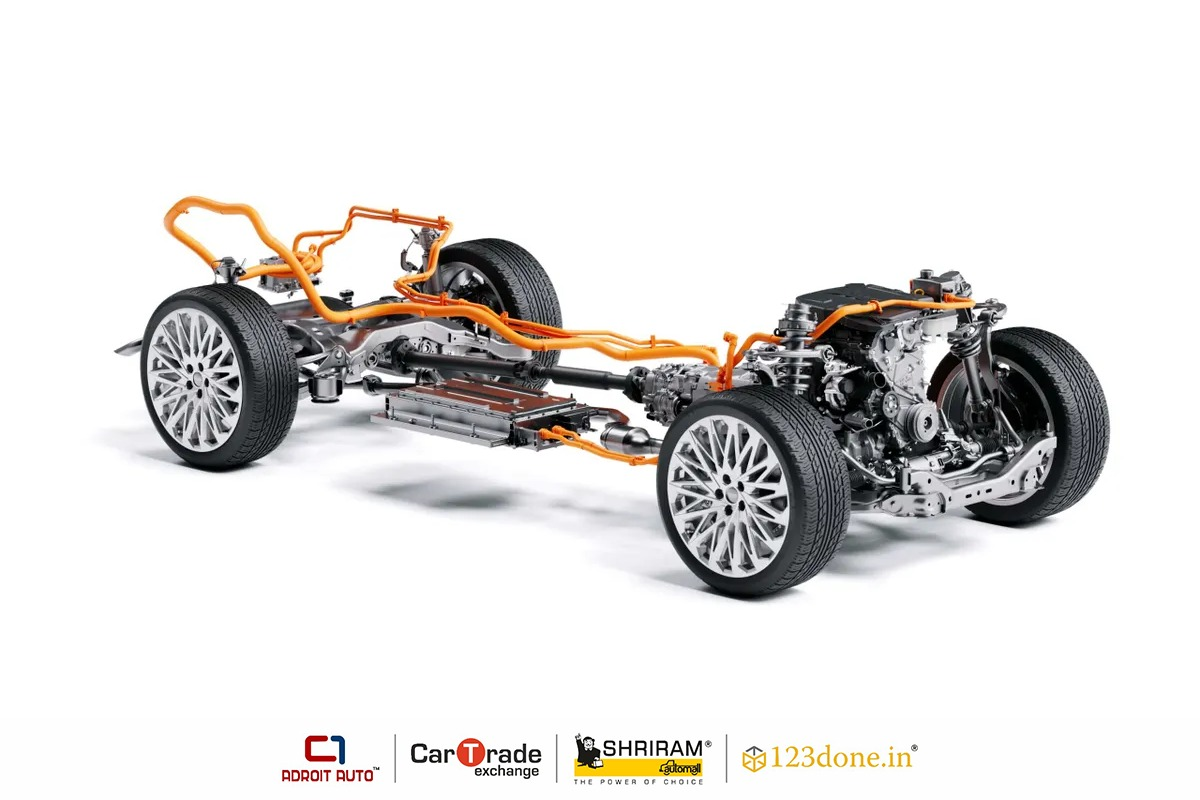Electric Vehicles vs Hybrid Cars: Which One Drives the Future?

Change is happening in every sector of India nowadays. This is also true for the Indian roads and ultimately the automotive sector. Fuel prices are on the rise, which is paving the way for cleaner and greener alternatives. There are electric vehicles that use an electric motor to work, whereas there are hybrid cars that use both an electric motor and a traditional combustion system. Now, the big debate that rose is electric vehicles (EVs) vs hybrid cars, which one is better for roads? The ideal choice is dependent upon driving habits, infrastructure, and personal priorities. EVs offer lower running costs and superior air quality, whereas hybrids offer greater convenience and greater range.
This blog is your guide for knowing which is better for roads, Electric vehicles (EVs) or Hybrid cars?
Electric Vehicles (EVs) vs Hybrid Cars
Before we get into the difference between EVs and hybrids, and which one is better. We must dive into what these two cars are:
Electric Vehicles (EVs)
The cars that run entirely on electricity, which is stored in the batteries, are electric vehicles (EVs). Examples of Electric vehicles include the Tata Nexon EV or the MG ZS EV cars. EVs have become incredibly popular in India due to their eco-friendly nature and cheaper running costs. In areas of high traffic, like Delhi, EVs are the best fit, as they are quiet and smooth. With many new and improved models coming up, electric vehicles are becoming cheaper and more affordable.

With all these advantages, India’s infrastructure still proves to be a hurdle for electric vehicle purchasing. The system is still in progress, and there are a very small number of charging points in India for electric vehicles. For long drives and far-off destinations, there is an anxiety about running out of charge. The batteries of EVs are also very expensive, and the upfront cost of electric vehicles is also very high.
Hybrid Cars
Hybrid cars, on the other hand, contain a petrol engine with an electric motor. They switch between the two as needed, increasing the fuel efficiency. Examples of hybrid cars include the Maruti Grand Vitara or Toyota Innova Hycross. In rural areas and hills, there are nearly no charging stations, making the hybrid cars a middle ground option between both efficiency and a green alternative.

With unpredictable Indian roads and a lack of charging infrastructure, going for a hybrid car is a better option indeed. Although Hybrid cars are greener than traditional vehicles, electric cars still win in this aspect since they completely rely on batteries.
|
Type of Hybrid |
Key Feature |
Electric-Only Capability |
Efficiency |
|
Mild Hybrid |
Assists the petrol engine |
Cannot run on electricity alone |
Moderate |
|
Strong Hybrid |
Can drive short distances on electric power |
Can run on electricity for short distances |
More fuel-efficient |
Read more about What is a Hybrid Car and How does it work.
Which is Better for Roads: EVs or Hybrids?
Depending on your lifestyle, you should make your choice. If you need your car for city driving mostly, then there is access to charging points, and hence, electric vehicles are the best option. They have zero emissions and are perfect for stop-and-go drives across the city and short distances. Backed by government incentives and schemes, EVs save cost and are proven to be very efficient.
By the year 2030, India is set to grow the new EV car sales to 30%, and the demand for hybrids is also set to increase significantly. As the technology keeps improving, EVs are set to take the lead in the future for sure. To end the debate on Electric vehicles (EVs) vs Hybrid cars, it all comes down to your budget constraints and personal needs. EVs are definitely the future, while hybrids are the practical bridge for Indian roads and the automotive industry today.
Read more about What Is Flex Fuel? Benefits, Disadvantages, Types & How It Works.
Conclusion
There is a definite shift towards sustainable mobility in India, and the advent of electric vehicles and hybrid cars is a step towards a greener future indeed. EVs bring zero emission promise along with smoother and quieter drives; whereas, hybrids offer more reliability and enhanced flexibility. The choice in electric vehicles (EVs) vs hybrid cars ultimately depends on your driving style, charging infrastructure, and budget constraints. For now, due to the lack of charging infrastructure, hybrid cars remain the most practical choice between the two.
Frequently Asked Questions (FAQs)
1. Which is better for Indian roads, electric cars or hybrid cars?
Both have their advantages. Electric cars are better for city driving where charging stations are available, while hybrid cars are more practical for long distances and areas with fewer charging points.
2. Are hybrid cars more fuel-efficient than electric vehicles?
Yes, hybrid cars are more fuel-efficient than petrol or diesel cars because they use both fuel and electricity. However, EVs don’t use fuel at all, making them cheaper to run in the long term.
3. Is it worth buying an electric car in India right now?
Yes, if you mostly drive within the city and have access to charging stations, buying an EV can save you money on running costs and help reduce pollution. But for long-distance travel, charging infrastructure is still developing.
4. What are the main differences between an electric car and a hybrid car?
Electric cars run entirely on batteries and need charging, while hybrid cars have both an engine and an electric motor. EVs are cleaner, but hybrids offer better range and convenience where charging options are limited.

 Download Our App
Download Our App



